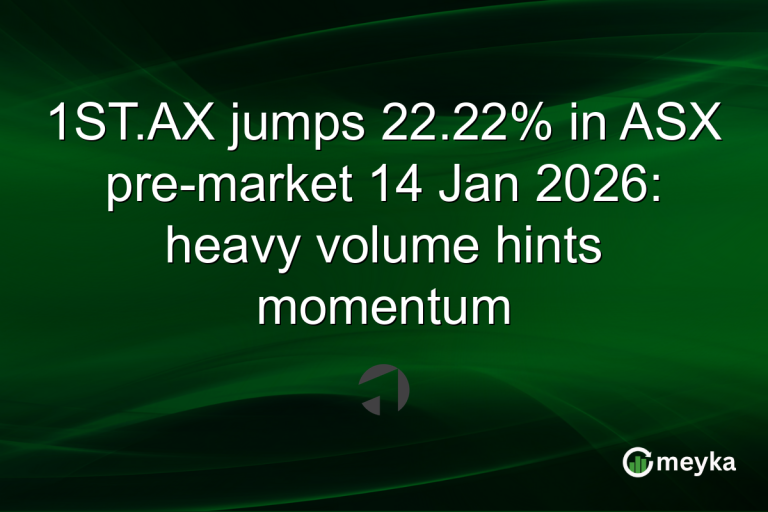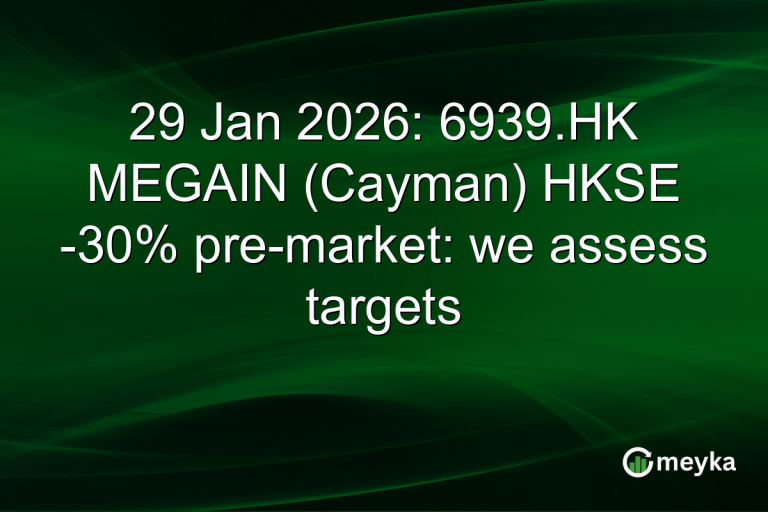P911.DE News Today: Porsche Aktiengesellschaft Shares Slide Amid Slump
Porsche Aktiengesellschaft’s stock, traded as P911.DE, has grabbed attention with a steep decline today. Porsche Aktie shares today fell sharply, stirring concerns among investors. The current slump is attributed to dwindling electric vehicle (EV) demand and a broader selloff impacting German automakers. As we assess the factors behind this downturn, it’s crucial to examine the current market data and potential forecasts.
Current Market Performance
Porsche Aktiengesellschaft’s current stock price stands at €44.06, with no change percentage observed throughout the day. The price volatility spanned between a low of €43.92 and a high of €44.67. A significant concern has been the year-to-year comparison, showing a sharp decline from a high of €75. This marks a noticeable drop, given the year-to-date change of -26.47%. Over the past year, the stock has dwindled by 54.91%. Analysts have yet to provide updated price targets, but the market cap at €40.1 billion highlights the scale of ongoing investor unease. The average trading volume of 603,168 shares contrasts with today’s lower activity of 396,885 shares, suggesting potential fatigue or hesitancy among traders.
Reasons Behind the Decline
Several factors are contributing to why Porsche stock is falling. Key among them is declining demand for EVs, particularly in Europe, as noted by a Reuters report. The broader automotive sector is seeing a shift in consumer preferences, affecting Porsche even as it expands its EV lineup. Additionally, a general market selloff affecting German automakers is weighing heavily on Porsche Aktie shares today. Lastly, macroeconomic uncertainties, such as disrupted supply chains and inflationary pressures, worsen the situation. With earnings set for October 23, stakeholders are hopeful for better insights into Porsche’s strategies to counter these challenges.
Financial Health and Ratios
The financial metrics of Porsche AG, while robust, demonstrate some underlying issues. The P/E ratio stands at 18.59, and the EPS at 2.37. These signify moderate valuation levels but are challenged by the stock’s continued slump. Debt ratios remain a point of analysis, with a debt to equity ratio of 0.467, indicating prudent leverage. The company’s operating cash flow per share is 5.30, reflecting adequate operational efficiency despite revenue growth slowing to -1.11%. According to Yahoo Finance, Porsche’s cash flow and returns reveal constraints, with a free cash flow yield of 3.71%. These metrics, while significant, underscore why there’s caution about investing at this moment.
Future Prospects and Forecast
The forecast for Porsche AG’s stock paints a cautious picture. The monthly outlook places the price at $37.09, dropping further in quarterly terms to $32.30. Over a five-year horizon, projections show a deeper decline to $22.39. This suggests sustained pressure on Porsche’s stock if market conditions don’t improve. Experts emphasize the criticality of adaptive strategies to regain investor confidence. While the current analyst rating remains at “Neutral,” potential for a shift towards recovery exists but requires tangible improvements. The company’s innovations, especially in the EV sector, will be pivotal, yet the existing investor sentiment reveals skepticism about immediate recovery, as highlighted by Bloomberg.
Final Thoughts
In conclusion, the current trends affecting Porsche Aktiengesellschaft reveal significant hurdles. The focus remains on strategic adjustments amid challenging market conditions, particularly with the EV segment. Investors are advised to monitor the upcoming earnings announcements for clearer indicators of Porsche’s next moves. As we navigate this landscape, tools like Meyka’s real-time analytics can offer valuable insights for investors aiming to stay ahead in volatile markets.
FAQs
Declines are due to reduced EV demand and market selloff among German automakers, impacting investor confidence in Porsche’s future performance strategies.
Future forecasts depict a potential further decline, with prices possibly reaching $22.39 in five years, reflecting sustained market and economic pressures.
While the P/E ratio and cash flow remain reasonable, slowing revenue growth and debt levels are causing some investor concerns about long-term viability.
Disclaimer:
This is for information only, not financial advice. Always do your research.






